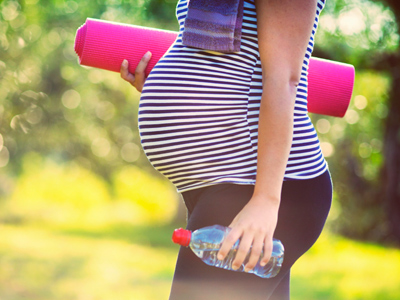
If it wasn't for reproduction, you wouldn't be here!
Reproduction 02
Revise what you know about adolescence and puberty. Do you understand hormones and glands?
Studying in years 7, 8 or 9? Enjoy learning by playing quizzes.
Scroll down to play the quiz
1 .
Which of the following is NOT true about a sperm cell?
It has a tail which moves so it can swim
The head contains enzymes to make a hole in the egg cell
The nucleus contains chromosomes
They live for a long time
They live for a very short time
2 .
The fertilised egg starts to divide. At first it is called .......
a baby
a foetus
a period
an embryo
The embryo is called a foetus at about nine weeks
3 .
Which of the following is NOT true about an egg cell?
It has a massive food store for the developing embryo
It is much larger than a sperm cell
One egg is only ever released at a time
The nucleus contains chromosomes
Sometimes two (or more) eggs are released at the same time. When this happens, if they are all fertilised, non-identical twins form
4 .
Which of the following physical changes, in girls, during adolescence is NOT true?
Breasts start to develop
Hips get narrower
Ovaries start to release eggs
Pubic and underarm hair grow
Hips get wider
5 .
Which of the following does NOT control the menstral cycle?
A fertility drug
Oestrogen alone
Oestrogen and progesterone together
Progesterone alone
Oestrogen causes the uterus lining to thicken, progesterone maintains the lining. Together they control ovulation
6 .
Which of the following does an implanted fertilised egg NOT need?
Carbon dioxide
Food
Oxygen
Warmth
Carbon dioxide is removed as the fertilised egg develops
7 .
Which of the following does NOT reduce fertility?
Female sex hormone in a fertility drug
Female sex hormone in an oral contraceptive
Female sex hormone to prevent ovulation
Female sex hormone to mimic pregnancy
The fertility drug stimulates eggs to mature and be released
8 .
Which of the following physical changes, in boys, during adolescence is NOT true?
Facial hair grows
Muscles and penis grow bigger
Testes start to produce sperm
Voice becomes higher
Voice becomes deeper
9 .
Which of the following is NOT true?
Carbon dioxide passes from the foetal blood to the mother
Food passes from the mother's blood to the foetal blood
Oxygen passes from the mother's blood to the foetal blood
The foetal blood and the mother's blood mix
The two blood supplies NEVER mix but materials are transferred from mother to foetus through the placenta
10 .
The physical changes during adolescence occur .......
because glands make hormones to start the changes
because you feel and think differently
because you have mood swings
because your emotions change
The others are all emotional changes which occur as the brain develops from that of a child to that of an adult
**Unlimited Quizzes Await You! 🚀**
Hey there, quiz champ! 🌟 You've already tackled today's free questions.
Ready for more?
Ready for more?
🔓 Unlock UNLIMITED Quizzes and challenge yourself every day. But that's
not all...
not all...
🔥 As a Subscriber you can join our thrilling "Daily Streak" against other
quizzers. Try to win a coveted spot on our Hall of Fame Page.
quizzers. Try to win a coveted spot on our Hall of Fame Page.
Don't miss out! Join us now and keep the fun rolling. 🎉
**Unlimited Quizzes Await You! 🚀**
Hey there, quiz champ! 🌟 You've already tackled today's free questions. Ready for more?
🔓 Unlock UNLIMITED Quizzes and challenge yourself every day. But that's not all...
🔥 As a Subscriber you can join our thrilling "Daily Streak" against other quizzers. Try to win a coveted spot on our Hall of Fame Page.
Don't miss out! Join us now and keep the fun rolling. 🎉







